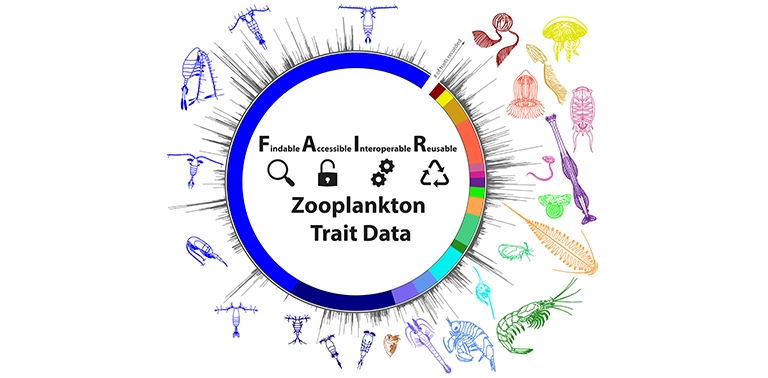
On 17th of March, the workshop “Approaches towards findable, accessible, interoperable and reusable (FAIR) zooplankton trait data as stepping stones to improved functional ecology” will take place, organised by Jessica Titocci e Ilaria Rosati, from CNR-IRET and LifeWatch Italy, in collaboration with Dr. Kieran Murphy (ARC Australian Centre for Excellence in Antarctic Science), Dr. Brian Hunt (University of British Columbia), Dr. Patrick Pata (University of British Columbia).
In the current era of the Anthropocene, both marine and freshwater ecosystems are undergoing significant changes that are disrupting their delicate balance. Zooplankton plays a key role in the trophic dynamics, productivity and functioning of all aquatic ecosystems. As grazers of phytoplankton and food sources for higher trophic levels, zooplankton organisms represent a key link in the transfer of energy and nutrients in food webs and strongly influence global biogeochemical processes.
Therefore, in light of the current crisis of biodiversity loss and climate change, it is of paramount importance to study the dynamics and distribution of zooplankton populations and communities and to understand the role of zooplankton functional diversity in food web dynamics and ecosystem processes.
To achieve a comprehensive understanding of the impacts and consequences of these changing ecosystems, and to raise awareness of the importance of zooplankton communities in sustaining marine and freshwater environments in these changing times, the 7th International Symposium on Zooplankton Production will be held in Hobart, Australia, from 17 to 22 March 2024. The symposium will provide a global framework for zooplankton researchers to share the latest advances in the field and discuss key issues such as the impact of climate change and biodiversity loss, innovative zooplankton sampling methods, biochemical perspectives, advanced modelling and other related topics. The event is organised by the International Council for the Exploration of the Sea (ICES) in collaboration with the North Pacific Marine Science Organisation (PICES).
Submit your abstract
The workshop will discuss the challenges of implementing FAIR principles and analysing zooplankton trait data. To achieve this goal, researchers in this field are invited to submit their abstracts for presentation at the workshop before 30 September 2023.
The workshop’s main objective is to assess the current status of trait-based research on zooplankton and explore future possibilities. The workshop will also focus on sharing and implementing FAIR principles and best practices to ensure that zooplankton trait-based data are findable, accessible, interoperable and reusable.
The preferred abstract topics for this workshop are:
- Zooplankton functional ecology
- FAIRness of zooplankton trait based data
- Trait data collection and management
- Novel frameworks and analytical methods and e-science tools in zooplankton trait-based studies
The event will begin with informative presentations and interactive, hands-on sessions. During these sessions, the speakers will present various digital services and semantic resources developed to promote the harmonisation and interoperability of zooplankton functional trait data.
Finally, participants will have the opportunity to explore a global database of zooplankton traits and create a species trait matrix. For more information on the workshop, please visit the dedicated page and use this page to submit your abstract.